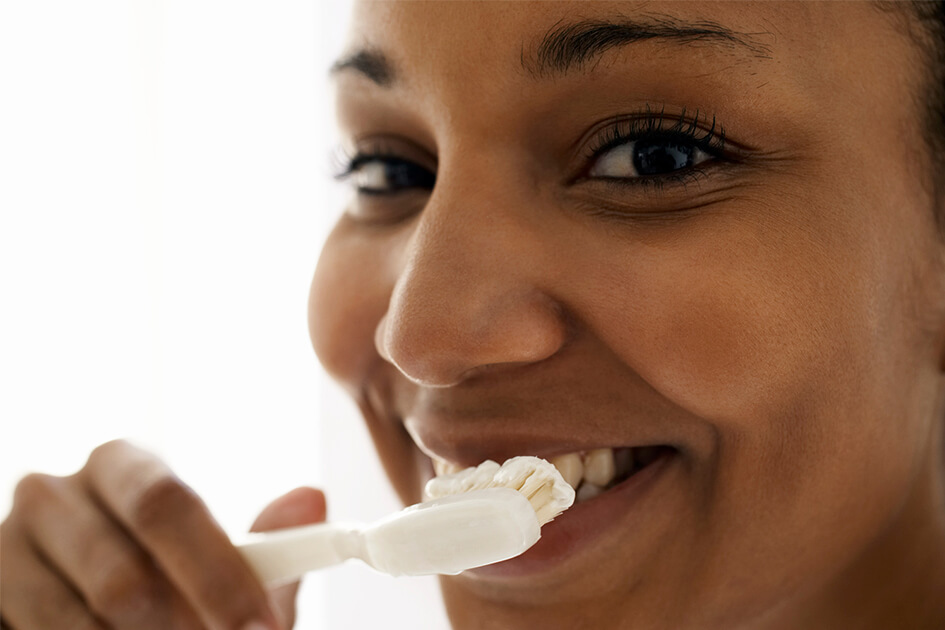- Empty cart.
- Continue Shopping
Understanding the Connection Between Diet and Dental Health in Women

Maintaining good dental health is a crucial aspect of overall well-being. However, the link between diet and dental health is often underestimated. In particular, women may face unique challenges and considerations due to hormonal changes and specific nutritional needs.
Hormonal Changes and Oral Health
Women experience hormonal fluctuations during various life stages, such as puberty, pregnancy, and menopause. These changes can impact oral health in several ways:
1. Puberty
During puberty, hormonal shifts can lead to increased blood flow to the gums, making them more susceptible to irritation and inflammation. This may require more diligent oral hygiene practices.
2. Pregnancy
Pregnancy hormones can affect oral health. Pregnant women are at an increased risk of gum disease, which can lead to complications like preterm birth. Regular dental check-ups and good oral hygiene are crucial during pregnancy.
3. Menopause
Menopausal hormonal changes can lead to oral discomfort, including dry mouth, burning sensations, and altered taste. It’s important to address these concerns with a dentist.
Nutritional Considerations for Dental Health
A balanced diet plays a significant role in maintaining optimal oral health. Here are key nutritional considerations for women:
1. Calcium and Vitamin D
These nutrients are essential for strong teeth and bones. Dairy products, leafy greens, almonds, and fortified foods are good sources.
2. Vitamin C
Vitamin C supports healthy gums and soft tissues. Include citrus fruits, strawberries, bell peppers, and broccoli in your diet.
3. Vitamin A
Vitamin A promotes healthy tooth enamel and mucous membranes. Sweet potatoes, carrots, spinach, and kale are rich sources.
4. Phosphorus
This mineral is crucial for strong teeth and can be found in dairy products, lean meats, and nuts.
5. Fiber
Fiber-rich foods promote saliva production and help clean teeth. Incorporate fruits, vegetables, and whole grains into your diet.
6. Limit Sugary and Acidic Foods
Sugary and acidic foods and beverages can contribute to tooth decay and erosion. Minimize consumption and practice good oral hygiene.
7. Stay Hydrated
Adequate hydration supports saliva production, which helps cleanse the mouth and neutralize acids.
8. Omega-3 Fatty Acids
These fats have anti-inflammatory properties that benefit oral health. Fatty fish like salmon, chia seeds, and flaxseeds are good sources.
Dental Hygiene Practices for Women
In addition to a balanced diet, practicing good dental hygiene is essential for maintaining oral health:
- Brush Twice Daily: Use fluoride toothpaste to brush teeth for at least two minutes in the morning and before bed.
- Floss Daily: Clean between teeth and along the gumline to remove plaque and food particles.
- Regular Dental Check-ups: Visit the dentist for cleanings and check-ups at least twice a year, or as recommended by your oral healthcare provider.
- Avoid Tobacco Products: Smoking and tobacco use are major contributors to oral health issues, including gum disease and oral cancers.
- Manage Stress: High stress levels can contribute to teeth grinding (bruxism) and jaw clenching. Practice stress-reducing techniques like meditation or yoga.
Conclusion: Prioritizing Dental Health in Women
Recognizing the connection between diet, hormonal changes, and dental health is essential for women to maintain a healthy smile throughout their lives. By adopting a balanced diet rich in essential nutrients, practicing good oral hygiene, and seeking regular dental care, women can enjoy optimal oral health and overall well-being. Remember, a healthy smile is a reflection of a healthy body!








